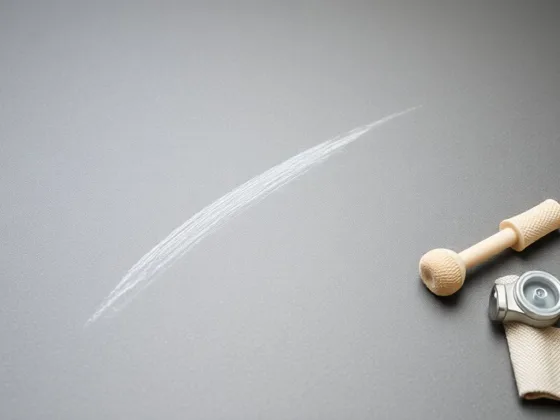Table of Contents Show
Introduction
Fear Of Messing Up (FOMU) is something many DIY enthusiasts can relate to. This fear can stop creativity in its tracks and prevent progress on home improvement projects.
Studies show that more than 60% of DIYers experience FOMU, resulting in unfinished projects and wasted resources. The worry of making mistakes can discourage even the most enthusiastic individuals from following their creative ideas.
Understanding and overcoming FOMU is crucial for successful DIY experiences. By addressing common fears and adopting practical strategies, you can transform apprehension into confidence, allowing your projects to flourish.
This article presents 7 Pro Tips to Overcome FOMU (Fear Of Messing Up) During a DIY Project to help you navigate your DIY journey with ease and assurance.
Understanding the Causes of FOMU in DIY Projects
Fear of messing up, commonly known as FOMU, can stem from various sources that deeply impact DIY enthusiasts. Identifying these causes is crucial for addressing and overcoming this fear.
Common Causes of FOMU
- Self-Trust Issues: Many DIYers doubt their skills and knowledge, leading to hesitation. Lack of confidence can paralyze decision-making and stifle creativity.
- Financial Fears: The cost of materials and potential wastage due to mistakes can be daunting. Fear of financial loss often discourages individuals from taking the first step.
- Safety Concerns: The inherent risks associated with using tools and handling materials can induce anxiety. Safety fears can make even simple projects seem intimidating.
Psychological Impact
The psychological barriers associated with FOMU significantly affect decision-making processes in DIY projects:
- Analysis Paralysis: Overthinking every step due to fear can result in indecision and project delays.
- Reduced Creativity: Anxiety about making mistakes stifles innovative ideas and experimentation, which are essential for unique DIY creations.
- Procrastination: Fear often leads to putting off projects indefinitely, resulting in unfinished tasks and a sense of failure.
Understanding these causes helps you recognize the roots of your anxiety, setting the stage for effective strategies to conquer FOMU in your DIY journey.
Expert Tips to Overcome FOMU During Your DIY Journey
1. Embrace Mistakes as Opportunities for Growth
Accepting that errors are part of learning in DIY projects is crucial. Mistakes are not a setback; they are stepping stones to mastery.
The Importance of Accepting Errors
Every DIY enthusiast, from beginners to experts, encounters mistakes. These blunders help you understand materials better, improve techniques, and innovate solutions.
Famous Mistakes That Led to Success
Here are some examples of famous mistakes that eventually led to successful outcomes:
- Post-it Notes: Created by accident when Spencer Silver at 3M was attempting to develop a super-strong adhesive.
- Penicillin: Discovered by Alexander Fleming when he accidentally left a petri dish open, leading to the growth of mold that killed surrounding bacteria.
Tips on Shifting Your Mindset Towards Viewing Mistakes Positively
- Reframe Your Perspective: View each error as a learning moment rather than a failure.
- Celebrate Small Wins: Acknowledge and celebrate minor achievements even amidst mistakes.
- Keep a DIY Journal: Document your projects, noting what went wrong and how you corrected it. This can serve as a valuable reference for future projects.
Mistakes pave the way for innovation and improvement. Embracing them will transform your DIY journey into an enriching experience filled with continuous learning and growth.
2. Plan and Budget Wisely for Your Projects
Creating a realistic budget is crucial in overcoming FOMU during your DIY endeavors. Start by listing all potential expenses, including materials, tools, and any possible professional assistance you might need. This helps in forming a comprehensive view of your project’s financial requirements.
Including a contingency fund is an essential part of this process. Set aside a portion of your budget to cover unforeseen costs or mistakes that may arise during the project. This safety net can reduce stress and allow you to focus on the creative aspects of your work.
Proper planning goes hand-in-hand with budgeting. Develop a detailed project plan that outlines each step, timeline, and resource needed. By having a clear roadmap, you minimize the risk of unexpected surprises that could derail your progress.
These strategies not only alleviate financial stress but also boost confidence in managing potential challenges effectively.
3. Research Techniques and Materials Before You Start
Thorough research is key to building confidence in your DIY projects. Utilizing blogs, social media, and YouTube tutorials can provide a wealth of information and inspiration. These platforms offer step-by-step guides, real-life examples, and expert advice that help you understand the nuances of various techniques and materials.
- Blogs: Detailed articles often break down complex projects into manageable steps.
- Social Media: Instagram and Pinterest are great for visual learners, providing images and short videos to spark ideas.
- YouTube Tutorials: Channels dedicated to DIY projects offer comprehensive video guides that demonstrate techniques visually.
Conducting thorough research ensures you feel more prepared, reducing anxiety associated with the fear of messing up. Knowledge empowers you to tackle your projects with confidence, turning apprehension into excitement.
4. Take Accurate Measurements to Minimize Errors
Accurate measurements are crucial in DIY projects to avoid costly mistakes and ensure a smooth workflow. Incorrect measurements can lead to wasted materials, additional expenses, and unnecessary frustration.
Importance of Precise Measurements
- Cost Savings: Precise measurements help you avoid buying excess materials or cutting pieces incorrectly.
- Efficiency: Correct dimensions ensure that parts fit together seamlessly, saving time and effort.
- Professional Finish: Accurate measurements contribute to a polished and professional-looking final product.
Tips for Organizing Measurements Effectively
- Use the Right Tools: Invest in quality measuring tools like tape measures, rulers, calipers, and laser measurers. For instance, you can explore some measuring tape tips and tricks to enhance your measurement accuracy.
- Double-Check Your Work: Always measure twice before cutting or assembling any materials. This is especially important when it comes to marking and cutting, as precision is key.
- Keep a Notebook: Document all measurements in a dedicated notebook or digital app to keep track of dimensions and calculations.
- Label Materials Clearly: Use masking tape or sticky notes to label cut pieces with their respective measurements.
By focusing on accurate measurements, you set yourself up for success and significantly reduce the likelihood of errors in your DIY projects. This principle also applies when undertaking more complex tasks like grinding and polishing a Dobsonian/Newtonian telescope, where precision is paramount.
5. Practice New Skills on Scrap Materials First
Practicing new techniques on scrap materials is a strategic way to enhance your skills and build confidence in your DIY projects. This approach allows you to make mistakes without the risk of ruining your main project, which can be particularly reassuring if you’re dealing with expensive or limited materials.
Benefits of Practicing on Scrap Materials:
- Risk-Free Learning: You can experiment freely, knowing that any errors won’t impact your primary work.
- Skill Enhancement: Repeated practice hones your skills, making you more proficient and less likely to make mistakes when you move to the actual project.
- Cost Efficiency: Using leftover or inexpensive materials minimizes financial losses from trial and error.
Consider setting aside a dedicated space for practicing new techniques. For instance, if you’re learning to use a new power tool, practice cutting or drilling on scrap wood before working on your final piece. This hands-on experience is invaluable, providing a safe environment to grow and perfect your DIY skills.
By incorporating this method into your DIY routine, you’ll find yourself more prepared and confident, ultimately reducing the fear of messing up (FOMU) during your actual projects.
6. Start Small with Low-Risk Projects to Build Confidence
Starting with small-scale, low-risk projects allows you to gain valuable experience and build self-assurance without the pressure of high-stakes outcomes. By tackling manageable projects first, you can develop your skills incrementally and enjoy the creative process.
Consider these beginner-friendly DIY projects:
- Creating a Custom Picture Frame: This project helps you practice measuring and cutting without the risk of significant material waste.
- Building a Simple Bookshelf: Enhances your woodworking skills while providing practical storage solutions.
- Revamping an Old Chair with New Fabric: Teaches basic upholstery techniques and can refresh your home decor.
- Crafting Planters from Recycled Materials: Encourages creativity and sustainability while being easy on your budget.
These projects are excellent starting points for building confidence and honing your craftsmanship, essential steps in overcoming FOMU.
7. Seek Support from Friends or Family During Your DIY Journey
Involving friends or family in your DIY projects can be a game-changer. Collaboration in home improvement tasks not only provides practical assistance but also emotional encouragement, which is critical when tackling complex tasks.
Benefits of involving others:
- Practical Assistance: Extra hands make light work. Whether it’s holding materials in place, helping with measurements, or simply providing an extra set of eyes to catch potential errors, having support can prevent mistakes and streamline your process.
- Emotional Encouragement: Facing FOMU can be daunting alone. Encouragement from loved ones boosts confidence and helps maintain a positive mindset. Sharing the journey and celebrating small victories together fosters a supportive environment conducive to learning and growth.
Learning from mistakes and adopting a growth mindset in DIY projects becomes more manageable when shared with those close to you. Expert tips to overcome FOMU in DIY projects often emphasize the importance of community. By seeking support, you’re not just reducing the fear of messing up; you’re enriching your experience with shared creativity and collaborative problem-solving.
Conclusion: Embrace the Joy of DIY Despite Fear of Messing Up!
Overcoming FOMU in DIY projects is a journey, not a destination. Embrace the process of home improvement with an open mind and heart. Perfection is not the goal; what truly matters is personal growth and creativity. Each project, regardless of its outcome, adds to your experience and skill set.
Remember:
- Mistakes are learning opportunities.
- Preparation and planning mitigate risks.
- Support from friends or family enhances your journey.
Feel empowered to tackle your next DIY project with confidence. Share your own experiences with FOMU in the comments below! Your stories can inspire others facing similar fears and create a supportive community for all DIY enthusiasts.
FAQs (Frequently Asked Questions)
FOMU, or the Fear Of Messing Up, is a common psychological barrier that affects many DIY enthusiasts. It can lead to anxiety and hesitation, ultimately impacting decision-making during projects. Understanding and overcoming FOMU is essential for successful and enjoyable DIY experiences.
Common causes of FOMU include self-trust issues, financial fears regarding the potential costs of mistakes, and safety concerns about using tools or materials improperly. These psychological barriers can significantly hinder one’s willingness to start or complete a project.
Embracing mistakes as opportunities for growth is crucial. Accept that errors are part of the learning process in DIY. Many successful projects have stemmed from initial mistakes. Shift your mindset to view these moments positively, recognizing that they contribute to your skill development.
To effectively plan and budget for your DIY projects, create a realistic budget that includes a contingency fund for unexpected expenses or errors. Proper planning can alleviate financial stress related to potential mistakes and help you approach your project with confidence.
Practicing new skills on scrap materials allows you to enhance your techniques without the pressure of ruining your actual project. This practice helps build confidence and ensures that you are more prepared when applying those skills to your primary work.
Involving friends or family in your DIY projects can provide both practical assistance and emotional encouragement. Collaboration not only makes the task easier but also helps reduce the fear of messing up by sharing responsibility and creating a supportive environment.










